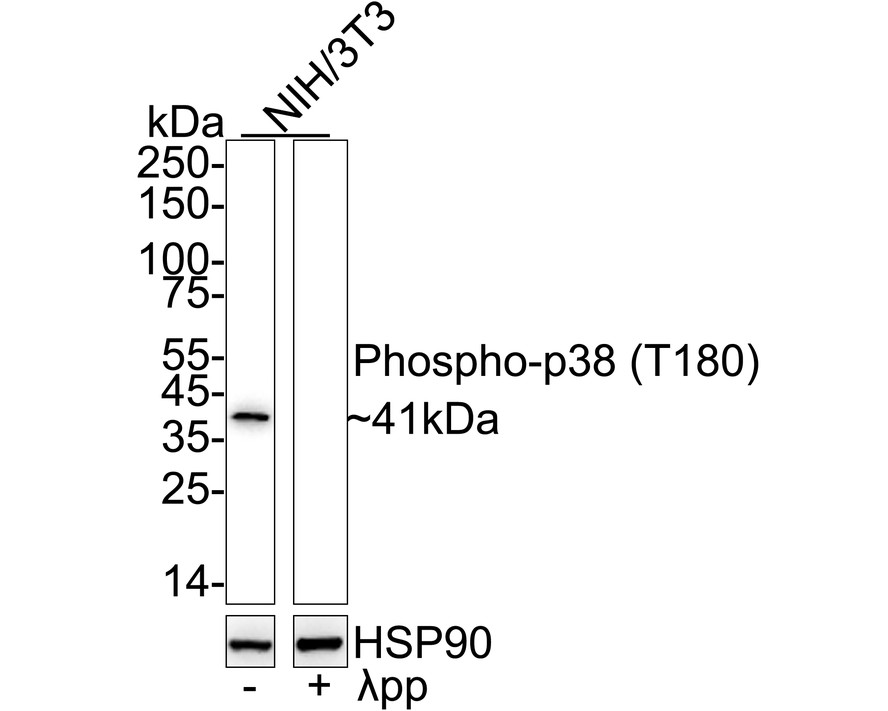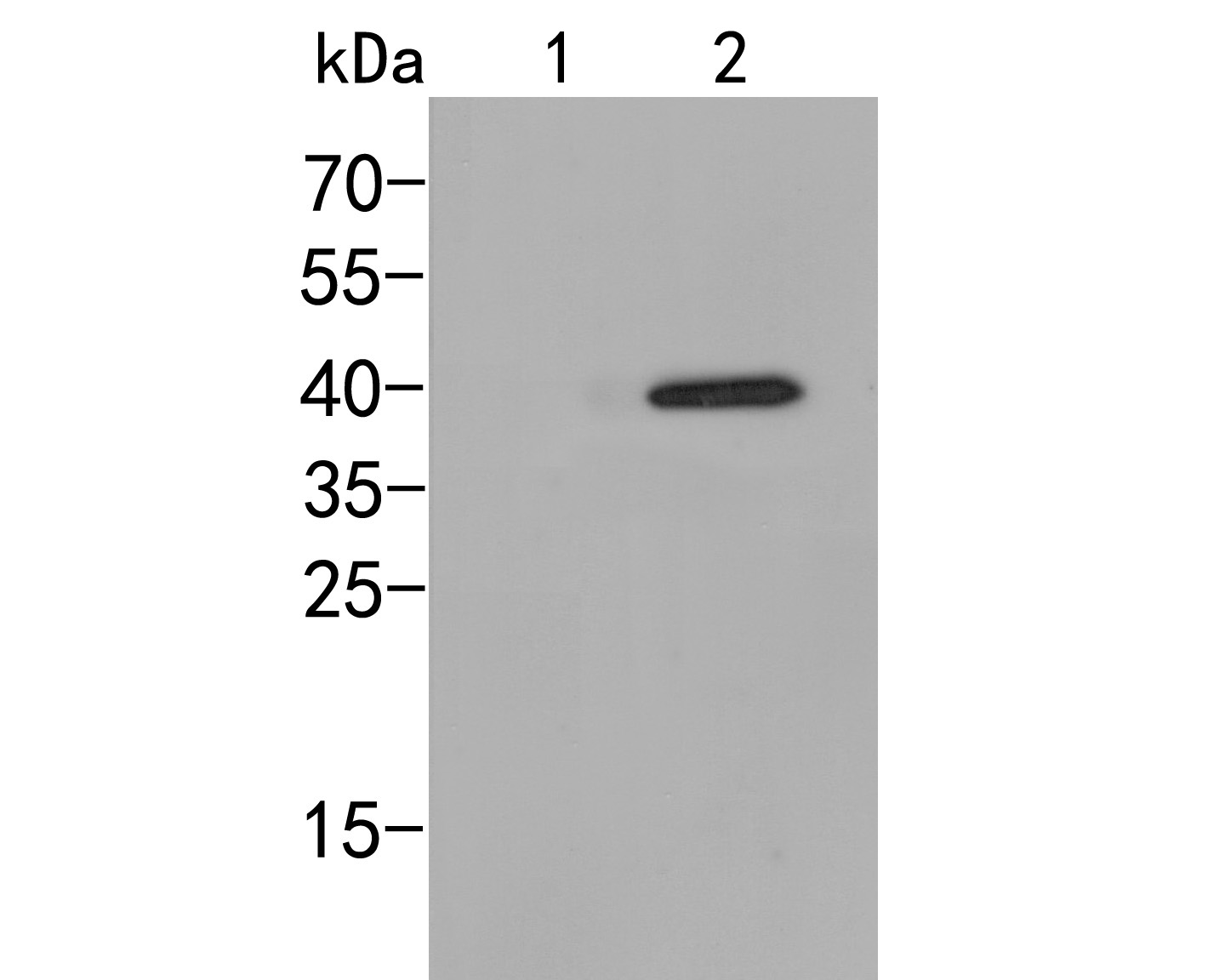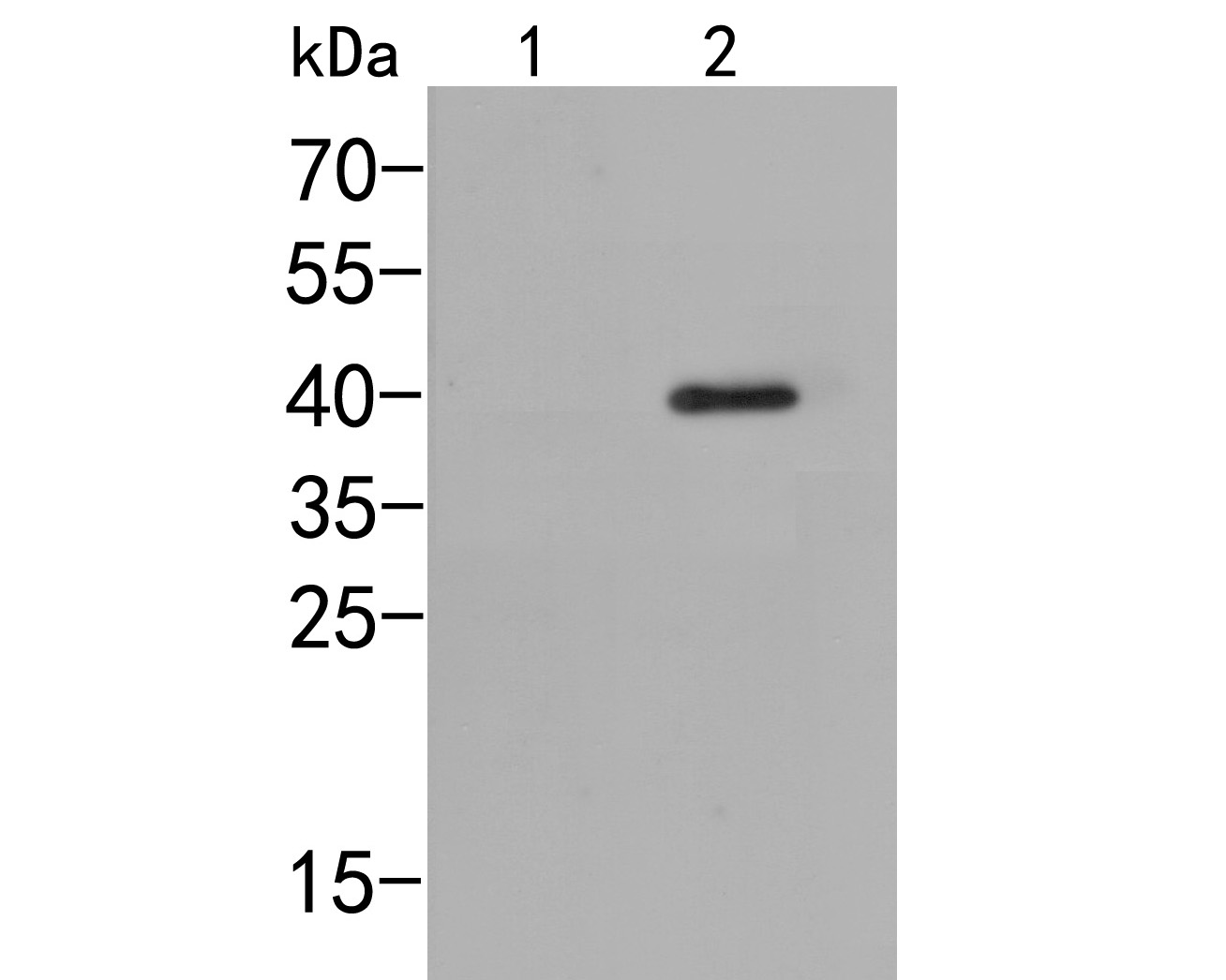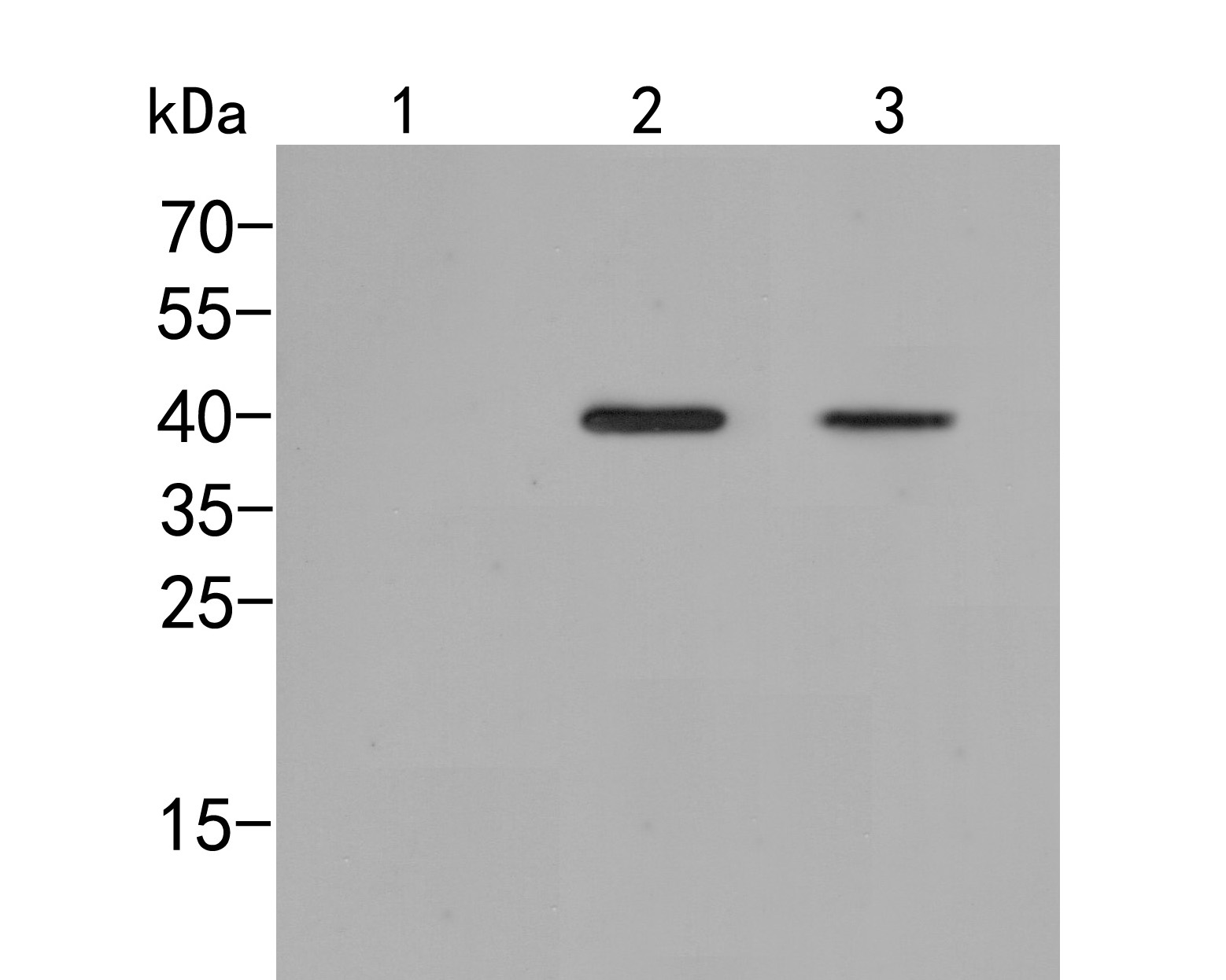Phospho-p38 (T180) Rabbit Polyclonal Antibody

cat.: ER2001-51
| Product Type: | Rabbit polyclonal IgG, primary antibodies |
|---|---|
| Species reactivity: | Human, Mouse, Rat |
| Applications: | WB |
| Clonality: | Polyclonal |
| Form: | Liquid |
| Storage condition: | Shipped at 4℃. Store at +4℃ short term (1-2 weeks). It is recommended to aliquot into single-use upon delivery. Store at -20℃ long term. |
| Storage buffer: | 1*TBS (pH7.4), 0.2% BSA, 50% Glycerol. Preservative: 0.05% Sodium Azide. |
| Concentration: | 1ug/ul |
| Purification: | Immunogen affinity purified. |
| Molecular weight: | Predicted band size: 41 kDa |
| Isotype: | IgG |
| Immunogen: | Synthetic phospho-peptide corresponding to residues surrounding Thr180 of human P38. |
| Positive control: | NIH/3T3 cell lysate, 293 cell lysate treated with UV for 60 minutes, A431 cell lysate treated with UV for 40 minutes, Hela cell lysate treated with anisomycin at 250 ng/ml for 30 minutes, Hela cell lysate treated with UV for 40 minutes. |
| Subcellular location: | Cytoplasm, Nucleus. |
| Recommended Dilutions:
WB |
1:500-1:2,000 |
| Uniprot #: | SwissProt: Q16539 Human |
| Alternative names: | CSAID Binding Protein 1 CSAID binding protein CSAID-binding protein Csaids binding protein CSBP 1 CSBP 2 CSBP CSBP1 CSBP2 CSPB1 Cytokine suppressive anti-inflammatory drug-binding protein EXIP MAP kinase 14 MAP kinase MXI2 MAP kinase p38 alpha MAPK 14 MAPK14 MAX interacting protein 2 MAX-interacting protein 2 Mitogen Activated Protein Kinase 14 Mitogen activated protein kinase p38 alpha Mitogen-activated protein kinase 14 Mitogen-activated protein kinase p38 alpha MK14_HUMAN Mxi 2 MXI2 p38 ALPHA p38 p38 MAP kinase p38 MAPK p38 mitogen activated protein kinase p38ALPHA p38alpha Exip PRKM14 PRKM15 RK SAPK2A Stress-activated protein kinase 2a |
Images

|
Fig1:
Western blot analysis of Phospho-p38 (T180) on different lysates with Rabbit anti-Phospho-p38 (T180) antibody (ER2001-51) at 1/2,000 dilution. Lane 1: NIH/3T3 cell lysate Lane 2: NIH/3T3 cell lysate, the membrane treated with λpp for 1 hour Lysates/proteins at 20 µg/Lane. Predicted band size: 41 kDa Observed band size: 41 kDa Exposure time: 20 seconds; ECL: K1801; 4-20% SDS-PAGE gel. Proteins were transferred to a PVDF membrane and blocked with 5% NFDM/TBST for 1 hour at room temperature. The primary antibody (ER2001-51) at 1/2,000 dilution was used in 5% NFDM/TBST at 4℃ overnight. Goat Anti-Rabbit IgG - HRP Secondary Antibody (HA1001) at 1/50,000 dilution was used for 1 hour at room temperature. |

|
Fig2:
Western blot analysis of Phospho-p38 (T180) on different lysates. Proteins were transferred to a PVDF membrane and blocked with 5% BSA in PBS for 1 hour at room temperature. The primary antibody (ER2001-51, 1/500) was used in 5% BSA at room temperature for 2 hours. Goat Anti-Rabbit IgG - HRP Secondary Antibody (HA1001) at 1:5,000 dilution was used for 1 hour at room temperature. Positive control: Lane 1: 293 cell lysate, untreated with UV Lane 2: 293 cell lysate, treated with UV for 60 minutes |

|
Fig3:
Western blot analysis of Phospho-p38 (T180) on different lysates. Proteins were transferred to a PVDF membrane and blocked with 5% BSA in PBS for 1 hour at room temperature. The primary antibody (ER2001-51, 1/500) was used in 5% BSA at room temperature for 2 hours. Goat Anti-Rabbit IgG - HRP Secondary Antibody (HA1001) at 1:5,000 dilution was used for 1 hour at room temperature. Positive control: Lane 1: A431 cell lysate, untreated with UV Lane 2: A431 cell lysate, treated with UV for 40 minutes |

|
Fig4:
Western blot analysis of Phospho-p38 (T180) on different lysates. Proteins were transferred to a PVDF membrane and blocked with 5% BSA in PBS for 1 hour at room temperature. The primary antibody (ER2001-51, 1/500) was used in 5% BSA at room temperature for 2 hours. Goat Anti-Rabbit IgG - HRP Secondary Antibody (HA1001) at 1:5,000 dilution was used for 1 hour at room temperature. Positive control: Lane 1: Hela cell lysate, untreated Lane 2: Hela cell lysate, treated with anisomycin at 250 ng/ml for 30 minutes Lane 3: Hela cell lysate, treated with UV for 40 minutes |
Note: All products are “FOR RESEARCH USE ONLY AND ARE NOT INTENDED FOR DIAGNOSTIC OR THERAPEUTIC USE”.